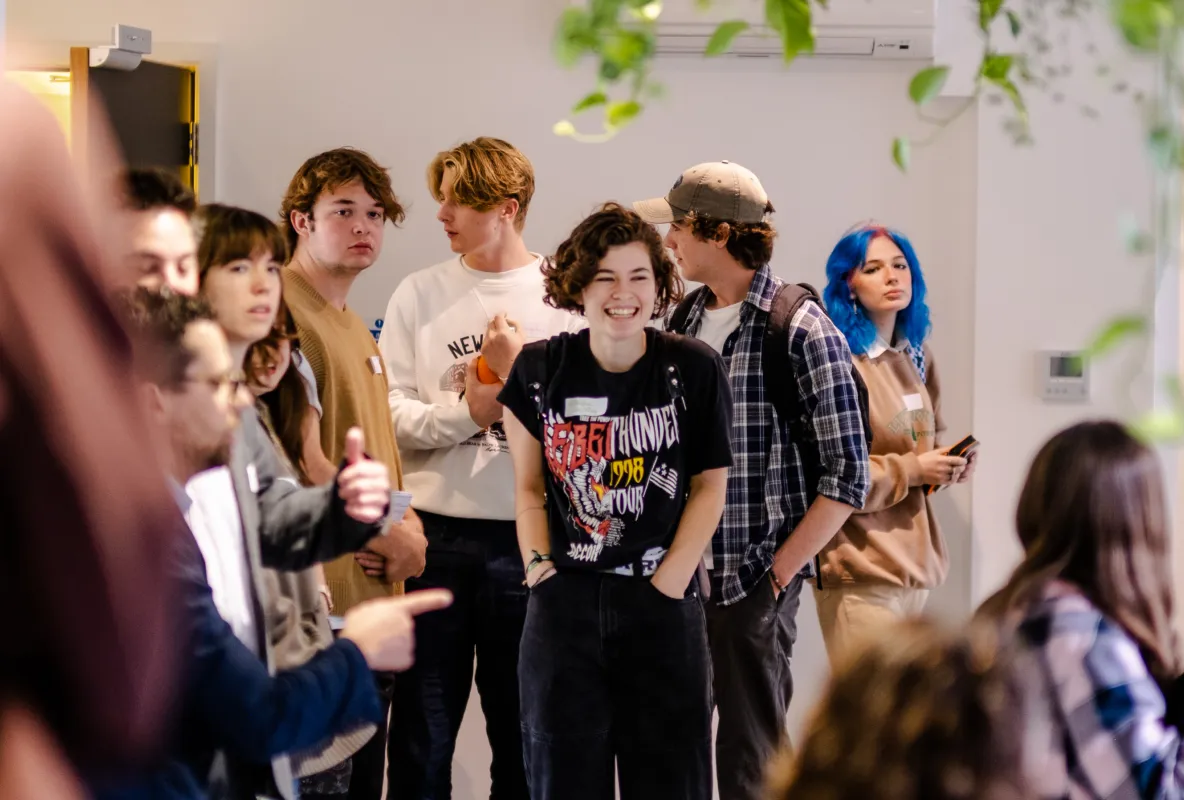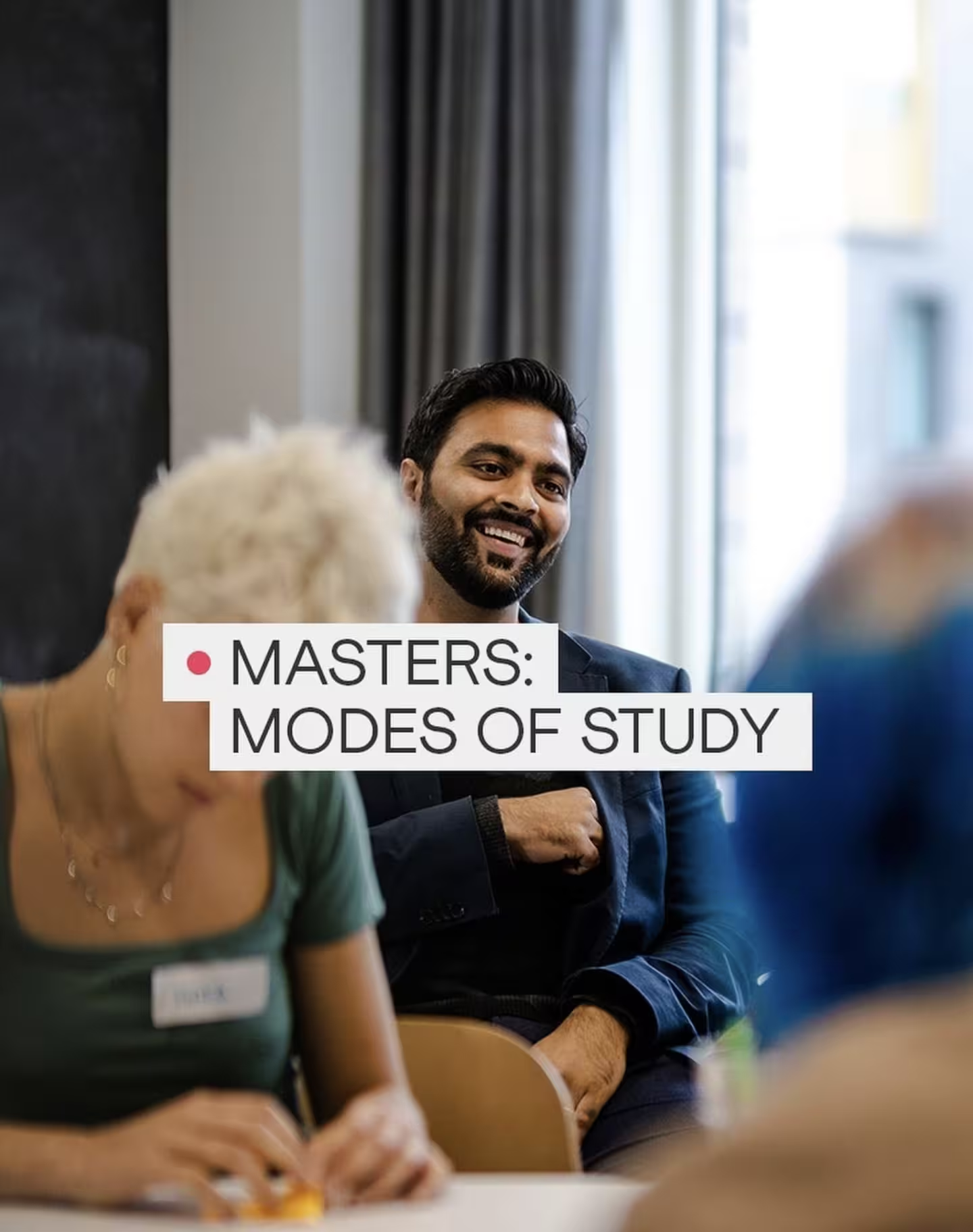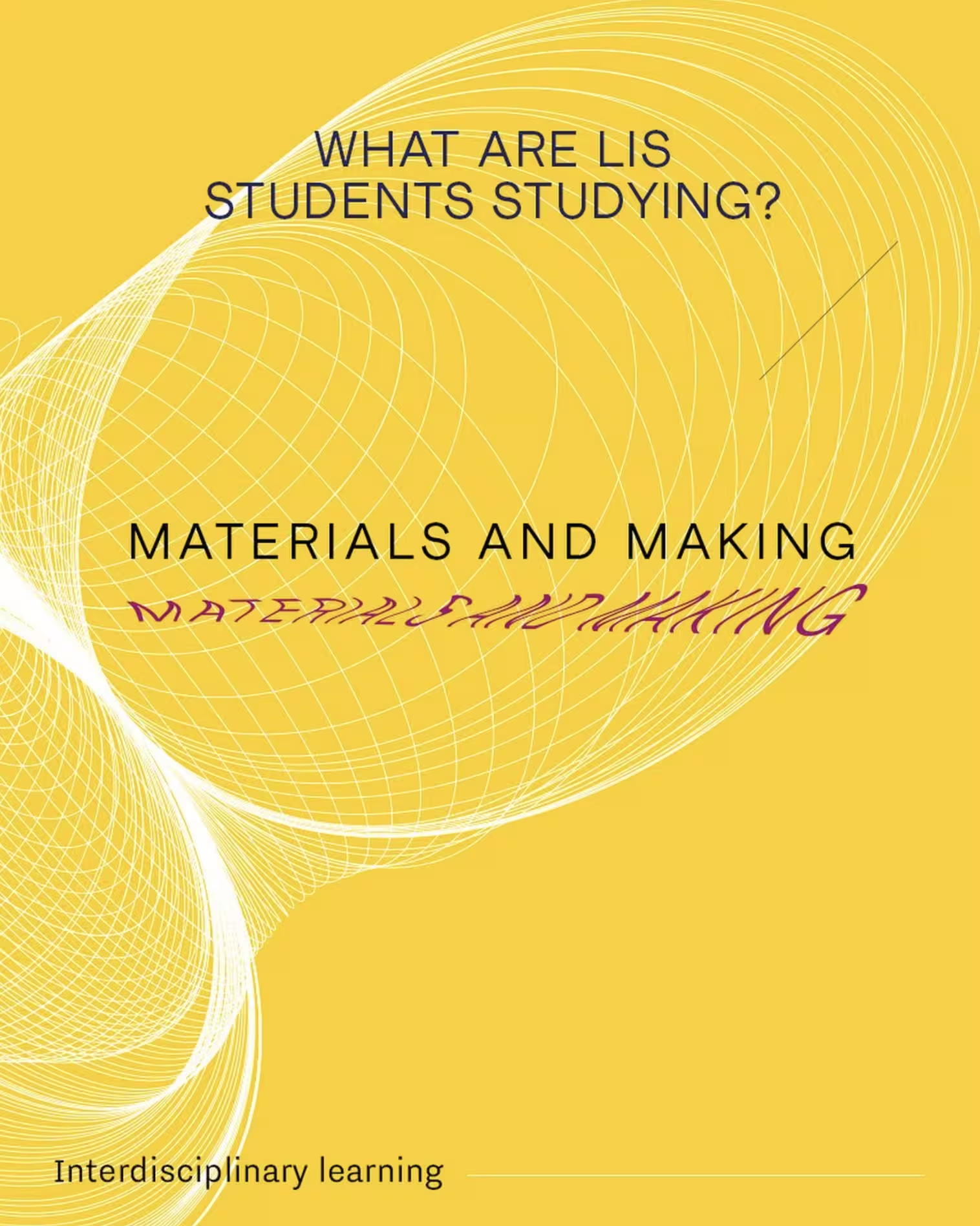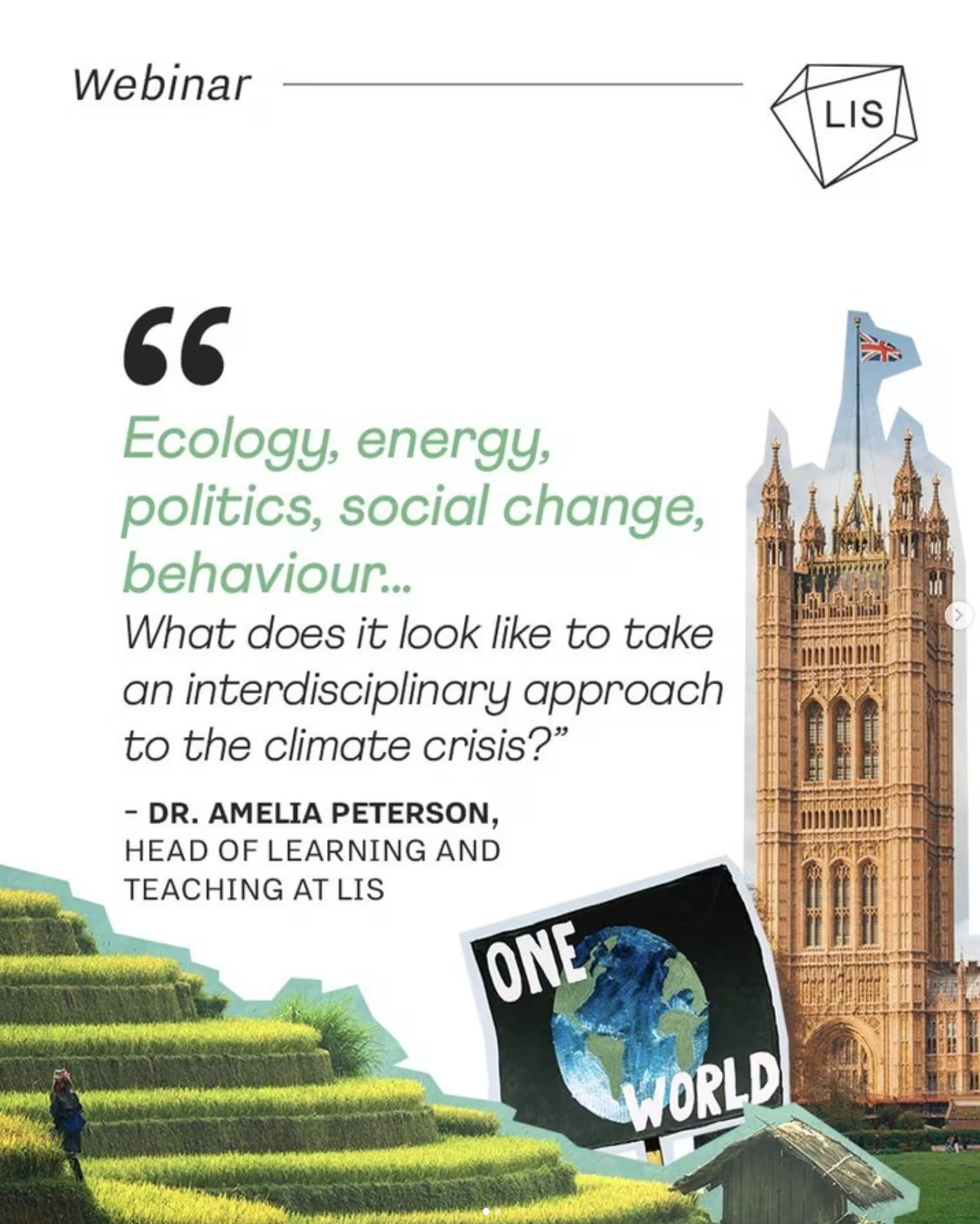LIS
So what’s different about LIS?
Our curriculum is radically new and different. We teach about real-world problems, and we teach methods to tackle those problems. Our admission process is also different. We have a holistic admissions approach here at LIS, where we value interdisciplinary thinking, problem-solving, and collaboration (see below for more info.)
So, how do your programmes compare to a Liberal Arts degree?
How do your programmes compare to a Liberal Arts & Sciences degree? We get this question a lot. In many ways, there are similarities, but there are also some big differences.
As our CEO, Ed Fidoe, discusses on the Deep Leadership podcast, we offer a degree that combines the arts, sciences, and humanities. However, while Liberal Arts & Sciences degrees offer a mix of disciplines, our model goes further. Instead of adhering to disciplinary boundaries, we're pioneering an interdisciplinary approach centred around complex problems.
We integrate fields like anthropology, mathematics, and network science to delve deep into real-world issues like inequality and sustainability. This approach challenges students to view problems from diverse perspectives, fostering innovation and uncovering blind spots.
You can watch the full podcast here.
Who are the founders?
LIS was founded by Ed Fidoe, and Chris Persson. Prof Carl Gombrich and Dr Michael Englard joined soon after.
Why are these people backing LIS?
Our backers want to support innovation in higher education. In the case of emlyon, they are interested in our innovative interdisciplinary curriculum and learning and teaching ideas.
Why have you started a new university?
The founders of LIS, the faculty members (teachers and academics) and the whole team, believe that much of the university sector has not moved with the times. Courses, assessment and teaching approaches are much the same as they were 20 or even 50 years ago, while a great deal has changed outside universities in that time.
The BASc degree and curriculum
Are you a liberal arts degree?
We have much in common with liberal arts and sciences degrees (but note the science component!). You study a wide range of subjects and get a lot of choice on the programme. However, we are different to almost all liberal arts degrees because we focus the curriculum on real-world problems, not just academic subjects.
How can you learn so many methods at once?
During the first year, you are introduced to a wide range of methods across the arts-sciences spectrum and all students must study all methods. In years 2 and 3 you can specialise in the methods you are interested in and so you narrow your focus on the particular methods of interest to you. However, all students must study some balance of quantitative and qualitative methods, as we think both are important!
How does the curriculum work - in two sentences?
We teach about real world problems and methods to tackle those problems. We teach a full spectrum of methods from the sciences, social sciences arts and humanities with students studying very widely across methods in year 1 and then specialising more in years 2 and 3.
I’ve heard you don’t teach any subjects on the degree. What does this mean?
We teach material from many different subjects but only if it’s relevant to tackling a real-world problem like climate change, migration, AI and ethics, sustainability, education, urban development, etc. So, for example, if we are studying how to tackle inequality, you may learn about the economics of inequality, but also perspectives from psychology or philosophy if they are relevant to tackling inequality. We focus education on real-world problems, not just academic subjects because we believe these are the important issues to address in our times, and education should reflect this. We also know that employers like graduate students who are better equipped to deal with real-world issues.
What are the actual methods that you teach?
We teach a wide range of methods from data science and mathematical modelling - at the science end of the spectrum - to visual methods, visual analysis, interviews and historical contextualisation at the arts/humanities end of the spectrum. We also teach many methods from the social sciences: survey design, ethnography, running focus groups, etc.
What degree will I get if I graduate from the BASc at LIS?
You get a bachelor's degree, a BASc in Interdisciplinary Problems and Methods.
What does ‘BASc’ stand for?
BASc stands for ‘Bachelor of Arts and Sciences’. This is the type of degree you get at LIS. We use this title because you study a range of arts and sciences subjects and methods, unlike a single-honours science degree (a BSc) or a single-honours humanities degree (a BA). There are other BASc degrees in the UK at UCL, Warwick and Brunel.
What other options do I have on the degree?
In year 2 you choose 3 electives from a roster of about 9 and in year 3 you choose 5 electives from a roster of about 13 (exact numbers depend on demand each year). This allows you to specialise more in your methods of choice (e.g. data science, natural language processing, ethnography, ecological methods, visual methods, design thinking, etc) while still keeping a sufficiently broad spectrum to be interdisciplinary.
What real-world problems do you focus on?
We scope out some large ‘problem areas’ and then students get to work on a narrower problem of choice within that area. For example, our current main problem areas are Inequality, Sustainability, Tech and Ethics, and Urban Futures. Within these areas, a student might work on such diverse problems as ‘Inequality of mental health treatments between different ethnic communities’ or ‘Inequality within the fintech sector’ or, in the Sustainability module, the range of problems could be from ‘Creating sustainable waste products from a start-up micro-brewery’ to ‘How should we introduce sustainable supply chains in the financial sector of the City of London?’
Why do you teach methods, not subjects?
By learning different methods, you are then able to read up on or get information about a wide range of subjects, i.e. an understanding of methods gives you the possibility to go wider and more deeply in your search for reliable and useful knowledge. The instant availability of information today - and the rise of AI - means you do not need to follow set readings at school or university in the way that was required previously. However, you do need to have sufficient knowledge to understand the quality of the information you are reading. This means you need to be able to e.g. analyse the data presented in an article about COVID, understand how a survey about political intentions was designed and used (in case it is biased), or how a piece of media was created and edited to highlight aspects of a conflict, etc. A knowledge of methods empowers you in this way.
Will I be able to work on my own problems at LIS?
Yes. At the end of years 1 and 2, you do your own, 7-week project on a problem of your choice, using the methods you have learnt throughout the year. Then, throughout your final year, you do a ‘capstone’ project on a problem of interest to you.
Will there be other problems to work on at LIS?
Yes. We will refresh the problem areas regularly. The current problem areas are listed above. At the end of each year, you also get to work on a problem entirely of your choice (see below).
Am I the right student for this degree?
Do I have to be good at maths?
Not really. You do not need any maths background at A level to join LIS. However, you need to be really up for learning some data science, coding and mathematical modelling when you get here. We can take you from a low base to a decent standard in these areas, but you need to be committed to the learning and appreciate the importance of being literate in these areas in the modern world. Please note that there is a lot of intellectual stretch and challenge in maths, data science and mathematical modelling on the course for students interested in these areas. This depends on how much you choose to use maths and data techniques in tackling your problems and what electives you take in years 2 and 3.
Do I have to do art or humanities at LIS?
All our students take some methods classes in things like video-making, photogrammetry and other visual methods, as well as methods from the humanities like writing or ‘close reading’. It’s a bit like a mirror of the ‘maths’ question above. You do not have to have a background in these areas when you join us, but you must be someone who appreciates the power of some of these methods in addressing real-world problems - and therefore up for learning some of them! Please note there are many opportunities to develop art and design skills on the programme for students interested in these areas. This depends on how much you choose to use arts and design skills and practice in tackling your problems and what electives you take in years 2 and 3.
Do I need high grades to get in?
Many of our students do have high or very high grades. However, we have an admissions policy which allows students from challenging circumstances or backgrounds to join us if we think they can succeed on the programme - even if they do not have excellent A levels or other results. The main thing is that we need to be sure that you can succeed on the programme.
How does your admission process work?
LIS is selective. The BASc is a challenging programme and we need to be sure students can thrive throughout the three years. But we know that judging anyone by 3 or 4 grades alone is not sufficient. So we do not have a minimum grade requirement, we interview everybody who applies. At LIS, we see the admissions process as an opportunity to get to know you as an individual. There are two 30-minute interviews: one more broadly about your interests and motivations, and a second one to assess your academic problem-solving. Then we consider many factors to make a decision. Your performance on interview day across two interviews, your achieved grades, any predicted grades, and your context. We’re committed to delivering a fair admissions system that admits students of outstanding achievement and potential, irrespective of their background.
I'm really into maths and science, is this degree for me?
Yes! We have outstanding teaching in data science and mathematical modelling. These are the part of science and maths we emphasise because they are so important in tackling real world problems and many areas of research and work today.
Is it a very ‘academic’ programme?
You will certainly need to enjoy being intellectually stretched to succeed on the programme. We believe that tackling difficult real-world problems requires serious thought, learning and action. However, the main thing is your interest and capacity for learning, challenging yourself intellectually and keeping engaged with the programme - not whether you can score highly on school exams.
What sort of student are you looking for?
To enjoy LIS you will need to be someone interested in tackling real-world problems and open-minded about using a wide range of methods to tackle these problems. You will also need to love learning! A lot! We believe learning - widely, deeply and continuously - is the key to success.
Will I be able to study Economics or Psychology at LIS?
Yes, you may study these subjects, but only if they are relevant to tackling a real problem! We think there is more value in focusing on the actual problem, rather than just learning in one discipline which may not be so helpful or relevant outside a university.
Teaching, learning and assessment
Do you do lectures?
We do very few traditional lectures. The large majority of our classes are highly interactive, with students working on material they have prepared to some extent before the class.
How big are the classes?
In the electives in years 2 and 3, classes are between 10 and 30 students. In the compulsory classes in year 1, classes can be the size of the whole cohort, currently between 35-55 students.
How many contact hours of teaching are there per week at LIS?
This varies quite a bit depending on which methods you study but the average time in contact with a teacher is 10-12 hours per week.
How much group work is there at LIS?
In the problems modules (roughly 1/3 of the curriculum) you generally study in groups of 4-5. This is the way most working situations outside of university also operate, and so we think it is important to learn how to work well in groups. In the methods modules (roughly 2/3 of the curriculum) you will study more on your own as each student must learn the methods we teach.
I’ve heard you do ‘flipped learning’. What is that?
Flipped learning has been around for a while now and it means giving course material - videos, reading etc - on the VLE before the class so that the class time can be used for more active learning. This consolidates your understanding and ensures you have understood the content, can use it productively, etc.
I’ve heard you have something called ‘prep culture’. What is that?
Prep culture is our take on flipped learning. You need to ‘prep’ before each class to get something out of it. There is a huge amount of scientific evidence that shows this is a more efficient and productive way to learn than just listening to lectures and taking notes. It’s basically like doing your training before a match or doing your music practice before a gig or performance. Makes sense!
What kind of assessments do you do?
We offer a very wide range of assessments, from using Jupyter notebooks in coding to the making of videos (using high-quality editing software), to the writing of manifestos or consultancy reports, to the creation of podcasts (using our audio studio), to group pitching or presenting to external organisations.
Who are your lecturers and teachers?
We recruited top academics from some of the best universities in the world. We paid special attention to the quality of their teaching as part of the recruitment process, so you can be guaranteed good teaching at LIS.
Student Life at LIS
Can I visit the campus before September?
Of course! Campus visits take place on Wednesday afternoons between 1-6pm. You can register for a campus visit or for our selection day on the 18th of August by completing this form.
Do students have access to sports facilities?
While LIS doesn't directly provide sports facilities, numerous gyms across London offer discounts to students. Additionally, LIS encourages and supports student-led societies, such as the Boxing Society, which facilitates regular sessions at designated gyms with professional trainers. These societies often join specific sporting facilities, allowing students to access training, such as boxing, yoga, or other sports. Though LIS doesn't cover general gym memberships, the possibility of financial assistance for society-related activities could be explored based on the society's setup and contributions to the student community.
Do you have any sports teams?
We are still a bit small to have sports teams which are just LIS. That is an ambition, though! Currently, our students play 5-a-side football as a team and some are involved in boxing, and climbing, and are keen to represent LIS at championships!
Do you have student societies?
Yes, lots! One advantage of being new and smaller is that students can be very active in setting up and running their societies. Everything from film and music to VC, debating and business. Some of our student-led clubs & societies are sports-based (football, climbing, boxing) and others are interest-based (music, podcasting, exploring cultures, LGBT+, art). If you want to launch your own club or society, go for it. We’ll provide you with the support to make it happen.
What is your campus like?
We are in a converted building in the heart of East London. There is a common room designed by students, for students, and our teaching rooms are designed to be welcoming and creative spaces, suitable for the interactive teaching we do. There are also kitchens and coffee machines on most floors of LIS! Read more about our beloved campus or take a virtual tour here. If you would like to see the campus for yourself, book a tour with us or one of our students by filling out this form.
What size is your cohort?
We currently accept around 35-55 students per year at undergrad and 40 at master’s. So there are currently about 110 undergrads and 40 master’s students around campus. i.e. we are currently small, but big enough to feel like a community. Many students like this because there is much more contact with lecturers and other members of the LIS team than you will find at other universities.
Where do your students live and how can I arrange accommodation?
At LIS, we don’t have our own accommodation. Instead, we have established agreements with some of London’s leading accommodation providers. This means that you can socialise and live alongside students from a diverse range of international and national backgrounds from other universities in London. In your second and third years, you can choose to remain in the halls, or you might like to share a flat with your friends. Most halls will offer a range of room options at different price points, so take the time to have a detailed look through each of the websites ahead of choosing your accommodation. You can find more information about our accommodation options here.
What can I do with my degree after LIS?
How do you know what sectors I can work in after I graduate from LIS?
We invest a lot of time understanding the graduate job market and needs of employers. For example, we have worked with the Institute of Student Employers and written for their publications. We regularly meet with many major employers and recruiters from our network, including The Gates Foundation, The Cabinet Office, McKinsey, PwC, John Lewis, Innocent Drinks, Transport for London, as well as a range of exciting new startups. We also have excellent feedback from employers who have taken our students on internships, with an average 9/10 satisfaction rate from employers and an average 78 NPS. To give just two examples, one of our current students has already been offered a job at Goldman Sachs, one of the world’s biggest investment banks, and another has been offered a job in a fast-growing start-up, Greenworkx, which works on upskilling the UK workforce for the green economy. Another student has been offered a Head of Growth role at an innovative AI startup, Element Human, while yet another student has secured a graduate offer from B-Corp. We also have data from other BASc degrees in the UK about the employment outcomes for BASc graduates. All point to excellent outcomes in multiple sectors.
What jobs can I get after I graduate from LIS?
A great many jobs in multiple graduate sectors will be available to you after you graduate from the LIS BASc. For example, you can work in the tech industry, finance, sustainability, or health, or work for the government (civil service), NGOs, or in the charity sector, the transport sector, or in marketing and branding, journalism, law, or start your own business! Indeed, 85% of jobs that will exist in 2030 haven’t been invented yet. To enable you to thrive in the future labour market, we empower you with the mindset, strategies and skills to become lifelong learners, with the ability to continuously adapt to evolving roles, industries and complex, real-world problems. LIS also offers you the opportunity to pursue more non-traditional routes, such as building a portfolio career or landing a hybrid job.
What master’s degrees can I take after LIS?
Many master’s programmes are interdisciplinary. See e.g. CoMPLEX | CoMPLEX - UCL – University College London or MAs in Medical Humanities - Durham University, most business and management master’s, etc. So, with the right electives at LIS and sufficient grades, you will be able to progress to the master’s of your interest.
Will I be able to do a law qualification after LIS and become a lawyer?
Yes. See above.
Will I be able to work in banking or finance after LIS?
Yes. See above.
Will I be able to work in branding or marketing after LIS?
Yes. See above.
Will I be able to work in journalism or media after LIS?
Yes. See above.
Will I be able to work in sustainability after LIS?
Yes. See above.
Will I be able to work in the health sector after LIS, maybe in something like digital health or nutrition and food?
Yes. See above.
Will I be able to work in the tech sector after LIS - e.g. for Amazon or Google?
Yes. See above.
Will I be able to work in transport or logistics after LIS?
Yes. See above.

We host a range of events, both on campus and online, for you to learn more about LIS. We know that we’re new, we’re different, and that you might have questions. Events are one of the best ways to get them answered.
Explore our events










































.svg)
